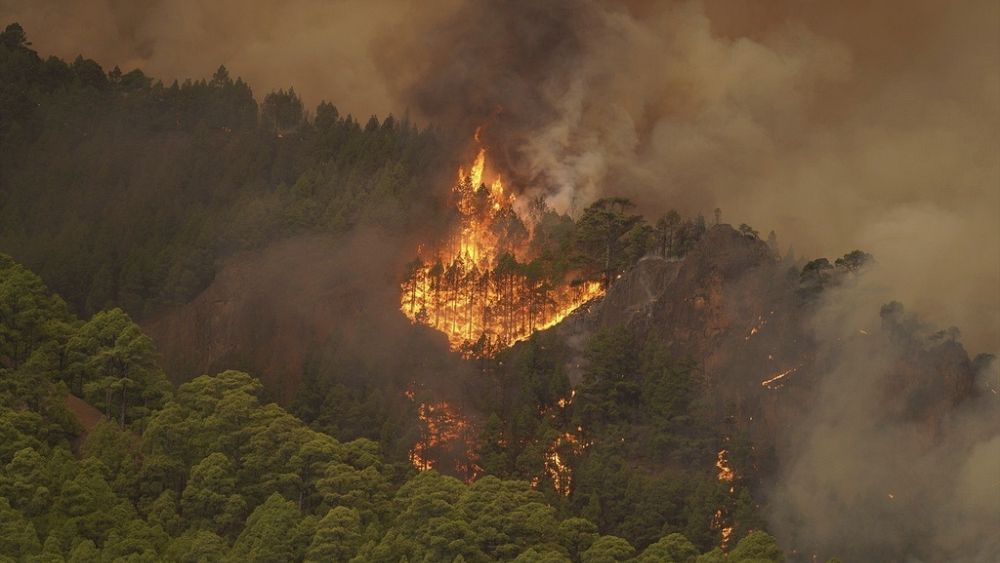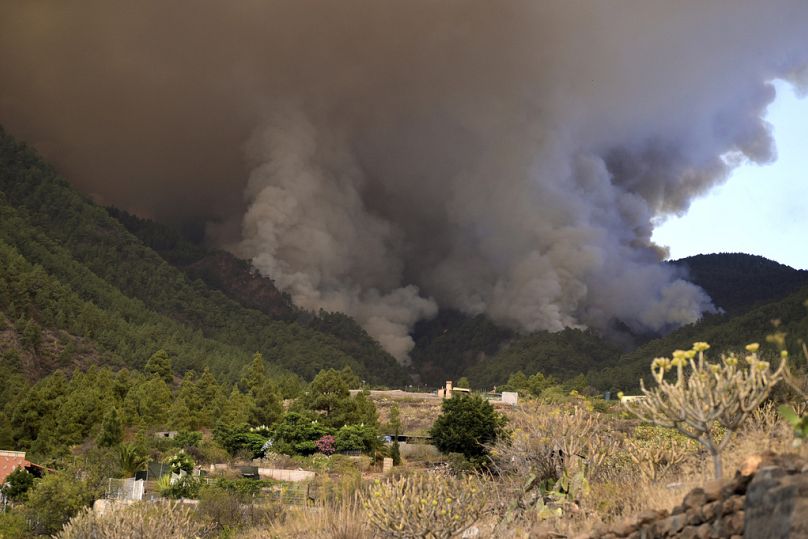
Regional President Fernando Clavijo said some 250 firefighters and members of the Spanish army are tackling the blaze, located in the north of the island, a key tourist destination. Clavijo said the fire had a nearly 30-kilometre-long perimeter.
 ADVERTISEMENT
ADVERTISEMENT“This is probably the most complicated blaze we have had on the Canary Islands, if not ever, in at least the last 40 years,” Clavijo told reporters. Extreme temperatures on the island, he said, added to “specific meteorological conditions” caused by the fire that turned the area into a virtual oven.
The blaze, which started Tuesday night, is centred on a craggy, mountainous area, which is difficult for emergency brigades to access. Spanish authorities said their main goal is to contain the fire and prevent it from reaching more populated areas. The island’s main town, Santa Cruz, is 20 kilometres away from the flames.
The wildfire is threatening six municipalities. Some 7,600 residents in the area have either been evacuated or ordered to stay indoors Thursday due to hazardous air quality. Clavijo said firefighters were working day and night but the fire remained “out of control.”
The seven-island archipelago is located off the northwest coast of Africa and southwest of mainland Spain.
Tenerife is one of Spain’s tourist hotspots. Tenerife Tourism office stressed in a statement Thursday afternoon that the main tourist areas and cities of the island are away from the fire. Business continues as usual in accommodation establishments, beaches and other tourist sites located in areas near the coast and in the midlands, the office said.
But access to the Teide National Park, the most important tourist attraction in Tenerife after the beaches, will be closed to the public from Thursday 18:00 local time (17:00 GMT), said the Canary regional government. All tourist facilities around the Teide volcano area, including accommodation, will be evacuated, alongside the Astrophysics Institute of the Canary Islands’ personnel.
Further evacuations are expected in the coming hours in several neighbourhoods. The wildfire is particularly virulent on its north side.

Temperatures in the Canary Islands peaked at more than 40 degrees Celsius in recent days. Temperatures are set to rise again on Saturday.
The fire could become Spain’s worst blaze so far this summer, as the country suffers another year of severe drought.
More than 2,000 people were evacuated in a wildfire on the nearby La Palma island last month that affected some 4,500 hectares.
Wildfires have burned almost 64,000 hectares in Spain in the first seven months of the year, according to Spanish government data. That’s the third-highest figure in the last decade.
 ADVERTISEMENT
ADVERTISEMENTSpain accounted for almost 40 per cent of the nearly 800,00 hectares burned in the European Union in 2022, according to the European Forest Fire Information System.





